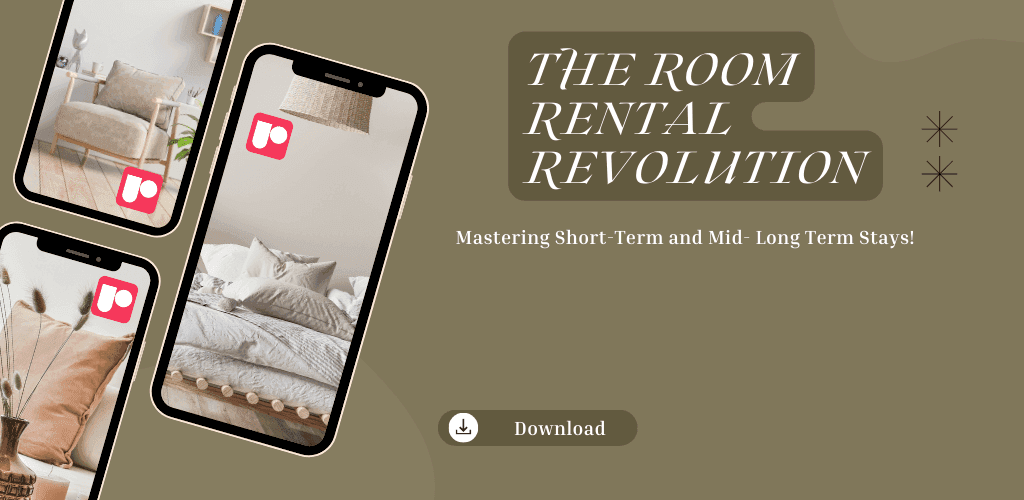
The Room Rental Revolution: Mastering Short-Term and Mid-Term Stays
Finding the perfect place to live can feel like navigating a maze. Long-term leases offer stability, but lack flexibility. Hotels provide convenience, but drain the wallet. Enter the world of short-term and mid-term rentals, a rapidly growing trend redefining how we approach housing.
This comprehensive guide delves into the world of short-term and mid-term room rentals, exploring the benefits and drawbacks for both tenants and landlords. Packed with valuable tips, insightful comparisons, and real-world examples, this blog empowers you to make informed decisions about your next move.
Why Short-Term and Mid-Term Rentals are Hot: Unveiling the Advantages
For Tenants
- Unmatched Flexibility: Short-term rentals are ideal for temporary stays. Whether you're on a work assignment, internship, or extended travel adventure, these rentals offer a comfortable haven without the commitment of a long-term lease. Need to relocate for a few months? A mid-term rental provides a perfect base camp while you explore permanent options.
- Potentially Lower Costs: While nightly rates might seem high at first glance, short-term rentals can be surprisingly cost-effective, especially for extended stays compared to traditional hotels. Factor in included amenities like utilities, internet, and sometimes even furniture, and the savings become even more enticing.
- The Allure of Amenities: Many short-term rentals come fully furnished and equipped, eliminating the need to invest in furniture or deal with setup hassles. You might even find access to on-site amenities like gyms, pools, or laundry facilities, offering a hotel-like experience at a fraction of the cost.
- Exploring Diverse Living Options: Short-term rentals open the door to experiencing different neighborhoods and living styles. Try out the bustling downtown core, a vibrant artistic district, or a peaceful suburban oasis before committing to a long-term lease in one location.

For Landlords
- Maximizing Rental Income: Short-term rentals can offer higher nightly rates compared to traditional year-long leases. This translates to potentially higher overall income, especially in areas with high tourist traffic or seasonal demand.
- Reduced Vacancy Woes: Short-term rentals can be a lifesaver between long-term tenants. Filling these gaps with temporary renters minimizes vacancy periods and keeps income flowing.
- Greater Control Over Your Property: Short-term leases provide more control over your property. Need to use the space for personal reasons or schedule repairs? Shorter leases offer greater flexibility.
Remember, knowledge is power: While short-term and mid-term rentals offer numerous advantages, there are some considerations to keep in mind.
Understanding the Downsides: A Balanced Approach
For Tenants
- Living on the Move: Short leases mean more frequent moves, which can be disruptive and require additional planning. Packing, unpacking, and potentially changing neighborhoods can be a hassle.
- Cost Considerations: While short-term rentals might offer cost advantages over hotels for extended stays, they may have higher cleaning fees or security deposits compared to traditional leases. Be sure to factor in all costs before making a decision.
- Unpredictable Availability: Finding the perfect short-term rental might require more flexibility on your end. Availability can fluctuate depending on the season or demand, so booking in advance is crucial.
For Landlords
- Higher Turnover: Frequent tenant turnover can be disruptive and require more work for the landlord, including tenant screening, cleaning, and managing logistics between rentals.
- Regulations and Restrictions: Some areas have regulations or restrictions on short-term rentals. Be sure to research local laws before diving into this market.
- Potential for Unreliable Tenants: With shorter leases, there's a higher risk of encountering unreliable tenants who might cause damage or disrupt neighbors. Thorough screening processes become even more important.
